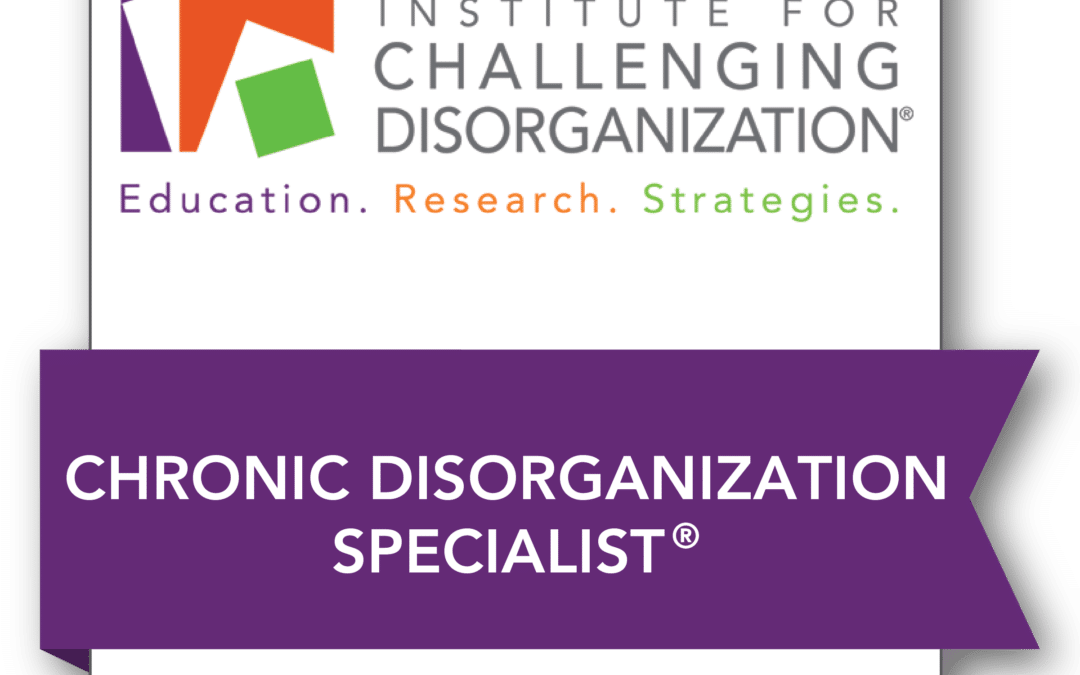The Institute for Challenging Disorganization (ICD) is a beacon of support, knowledge, and transformation for individuals grappling with chronic disorganization. With a mission centred on providing education, conducting research, and formulating effective strategies, ICD enhances the lives of those affected by this complex condition. Furthermore, ICD extends its support to professionals collaborating with individuals on their journey towards improvement.
Understanding the intricacies of chronic disorganization is essential before we delve into the wealth of knowledge and resources offered by ICD. This condition takes various forms, encompassing challenges in managing clutter, time, and communication, and it significantly impacts an individual’s overall well-being.
Chronic disorganization often coexists with brain-based challenges, further complicating matters. These challenges span a spectrum of conditions, including ADHD, Anxiety, Depression, Hoarding Disorder, PTSD, and Traumatic Brain Injury (TBI).
Deciphering the nuances of chronic disorganization is crucial:
1. Persistence:
Chronic disorganization endures over an extended period, consistently impacting an individual’s life.
2. Quality of Life Impact:
This condition frequently undermines the quality of life of those affected, permeating various aspects of daily living and well-being.
3. Recurrence:
One of the most challenging aspects of chronic disorganization is its tendency to resurface despite repeated attempts at self-help and improvement.
As someone who has embarked on a quest to comprehend and address chronic disorganization, ICD has provided a robust educational experience. Through ICD, I have acquired specialist certificates in Aging, ADHD, Hoarding, Chronic Disorganization, and Time Management & Productivity. This specialized education equips me with the knowledge and tools to effect meaningful change in the lives of those grappling with these challenges.
ICD® offers free Fact Sheets providing information about chronic disorganization for educational purposes. These materials are copyrighted, so proper credit is required for presentations, and permissions are needed for publications. ICD® is a nonprofit organization that encourages tax-deductible donations to support its mission of providing education, research, and strategies to help those affected by chronic disorganization.
You can download the Fact Sheets at:
https://www.challengingdisorganization.org/icd-fact-sheets
1. Are You Affected by Chronic Disorganization? (FS-001):
This Fact Sheet presents a series of questions to help individuals determine if they are affected by chronic disorganization, serving as a vital starting point for self-awareness.
2. Characteristics of Individuals Affected by Chronic Disorganization (FS-003):
This checklist outlines common characteristics of individuals affected by chronic disorganization at home and in the workplace, aiding in recognizing these traits.
3. Factors Associated with Disorganization (FS-004):
Chronic disorganization often coexists with other conditions; this Fact Sheet lists conditions commonly associated with it, shedding light on potential underlying issues.
4. Time Management Tips for Individuals and Households Affected by CD (FS-005):
Managing time can be a significant challenge; this Fact Sheet offers valuable suggestions and strategies to improve time management skills.
5. Tips for Overcoming Procrastination (FS-006):
Procrastination can be a significant obstacle; this Fact Sheet provides practical tips to overcome it and boost productivity.
6. Tips for Communicating with Individuals Affected by Chronic Disorganization (FS-007):
Effective communication is vital when dealing with chronic disorganization; this Fact Sheet presents techniques and strategies for successful communication.
7. Should I Hire a Professional Organizer or Work with a Friend? (FS-008):
Choosing whether to work with a professional organizer or a friend is a common dilemma; this Fact Sheet offers insights and tips to make the right decision.
8. Collecting, Compulsive Acquiring, or Hoarding Behavior? (FS-109):
Understanding the differences between collecting, compulsive acquiring, and hoarding behaviour is essential; this chart provides clarity on these behaviours.
9. Readiness for change – (FS-010):
Change is a fundamental part of overcoming chronic disorganization; this Fact Sheet helps assess readiness for change and provides valuable insights.
10. How do I Find an Organizer Who is Right for Me? (FS-009):
If considering working with a Professional Organizer, this Fact Sheet offers guidance on what questions to ask to ensure a wise choice.
ICD’s Fact Sheets offer a wealth of knowledge and practical advice. Whether you are personally affected by chronic disorganization or seeking to support someone who is, utilizing these resources and spreading awareness can empower individuals to lead more organized, fulfilling lives.
Please don’t hesitate to contact us for support and access to additional resources. We are dedicated to assisting you on your journey toward a more organized life, providing proven and effective strategies to help you achieve your goals.

